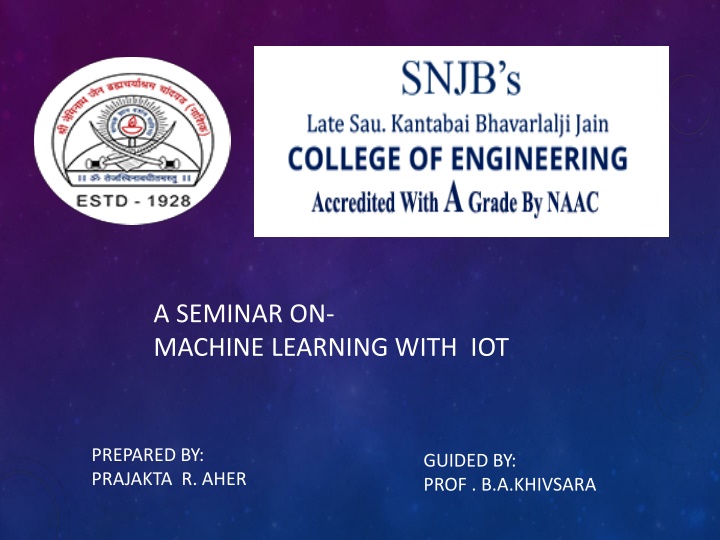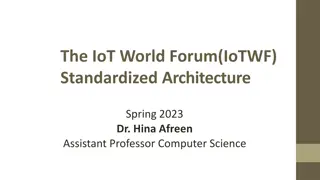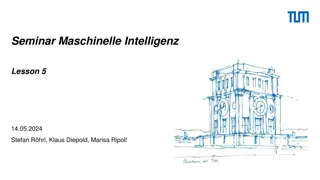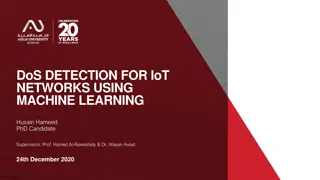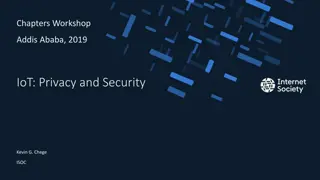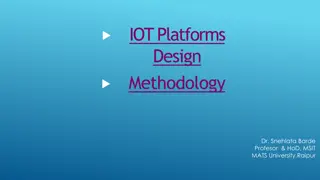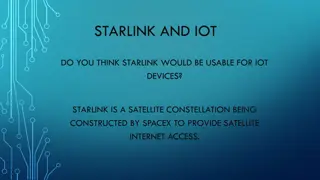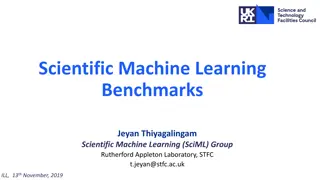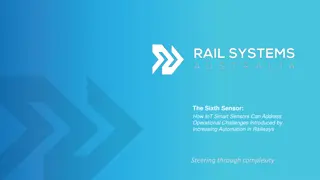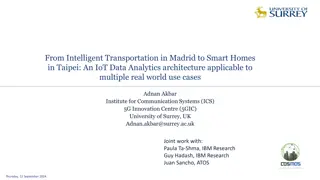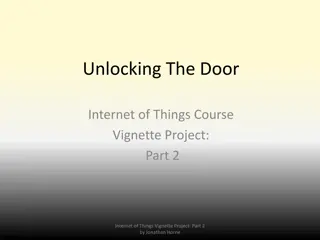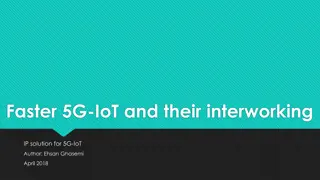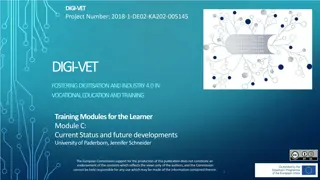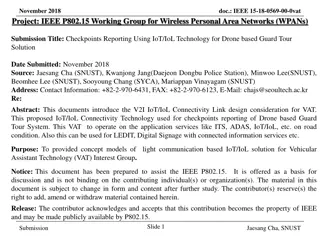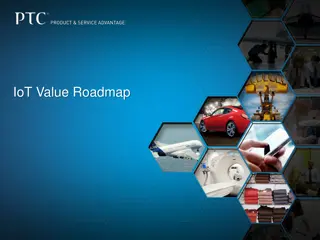Seminar on Machine Learning with IoT Explained
Explore the intersection of Machine Learning and Internet of Things (IoT) in this informative seminar. Discover the principles, advantages, and applications of Machine Learning algorithms in the context of IoT technology. Learn about the evolution of Machine Learning, the concept of Internet of Things, and the essential literature survey in the field. Delve into the diverse Machine Learning algorithms and their practical use cases like supervised learning, unsupervised learning, and reinforcement learning. Gain insights into how these technologies are shaping various industries and driving innovation.
Download Presentation

Please find below an Image/Link to download the presentation.
The content on the website is provided AS IS for your information and personal use only. It may not be sold, licensed, or shared on other websites without obtaining consent from the author.If you encounter any issues during the download, it is possible that the publisher has removed the file from their server.
You are allowed to download the files provided on this website for personal or commercial use, subject to the condition that they are used lawfully. All files are the property of their respective owners.
The content on the website is provided AS IS for your information and personal use only. It may not be sold, licensed, or shared on other websites without obtaining consent from the author.
E N D
Presentation Transcript
A SEMINAR ON- MACHINE LEARNING WITH IOT PREPARED BY: PRAJAKTA R. AHER GUIDED BY: PROF . B.A.KHIVSARA
OUTLINES Introduction Literature survey Working Advantages and disadvantages Conclusion References
INTRODUCTION OF MACHINE LEARNING Machine Learning is the scientific study of algorithm and statistical that computer system use to effectively perform a specific task without using explicit instructions on models and inference instead. Machine learning algorithms build a mathematical model of sample data, known as training data , in order to make predictions or decisions without being explicitly programmed to perform the task . Machine learning has experienced a boost in popularity among industrial companies thanks to the hype surrounding the IOT.
INTERNET OF THINGS Internet of things is a computing concepts that describes the idea of everyday physical objects being connected to the internet and being able to identify themselves to other device. Internet of things provides the great features with Machine Learning . It can change the world with better features.
LITERATURE SURVEY OF MACHINE LEARNING History and relationships to other fields. Arthur Samuel, an American pioneer in the field of computer gaming and artificial intelligence, coined the term "Machine Learning" in 1959 while at IBM. As a scientific endeavour, machine learning grew out of the quest for artificial intelligence. The ML programming language was developed in the 1970 by Robin Milner and his colleagues at the University of Edinburgh during their work on the logic for computational Functions.
ALGORITHMS OF MACHINE LEARNING Supervised learning Prediction Classification (discrete labels), Regression (real values) Unsupervised learning Clustering Probability distribution estimation Finding association (in features) Dimension reduction Reinforcement learning Decision making (robot, chess machine)
ALGORITHMS Unsupervised learning Supervised learning Semi-supervised learning
APPLICATIONS OF MACHINE LEARNING WITH IOT Smart Home. Weather forecast. Face detection Object detection and recognition Prediction systems Multimedia event detection Value saving in Industrial application
1.SMART HOME USING MACHINE LEARNING Smart Home is building Automation for the home. A Smart Home system should be able to predict a user s behaviour based on historical data and develop the so-called situational awareness . Machine learning algorithms trained on smart home sensor data can predict when an individual faces difficulty while performing everyday activities. Applications- 1.Face Recognition 2.Biometric Access Control (locks) 3.Natural language Processing(Voice Recognition)
2. WEATHER FORECASTING Machine Learning to do weather forecast (chance of rain) using the temperature and humidity data from your Azure IOT hub. The chance of rain is the output of a prepared weather prediction model. The model is built upon historic data to forecast chance of rain based on temperature and humidity. Run the client application to start collecting and sending temperature and humidity data to your IOT hub. Sensors 1.Temperature Sensor 2.Humidity Sensor 3.Pressure ensor
CONCLUSION We have a simple overview of some techniques and algorithms in machine learning. In the future, machine learning will play an important role in our daily life. The future of Machine Learning with IOT is virtually unlimited due to advances in technology and consumers desire to integrate devices. The design phase of IOT is very fast field with umpteen number of challenges and integrate with machine learning provides very high features.
REFERENCES [1] https://en.wikipedia.org/wiki/Machine_learning [2] https://en.wikipedia.org/wiki/Internet_of_things [3] https://www.sas.com/en_in/insights/articles/big-data/machine-learning-brings- concrete-aspect-to-iot.html [4] https://data-flair.training/blogs/iot-and-machine-learning/ [5] https://www.google.com/search?client=firefox-b-d&q=pictures
